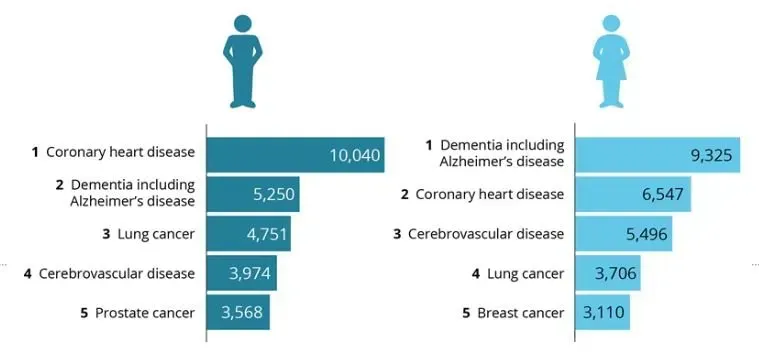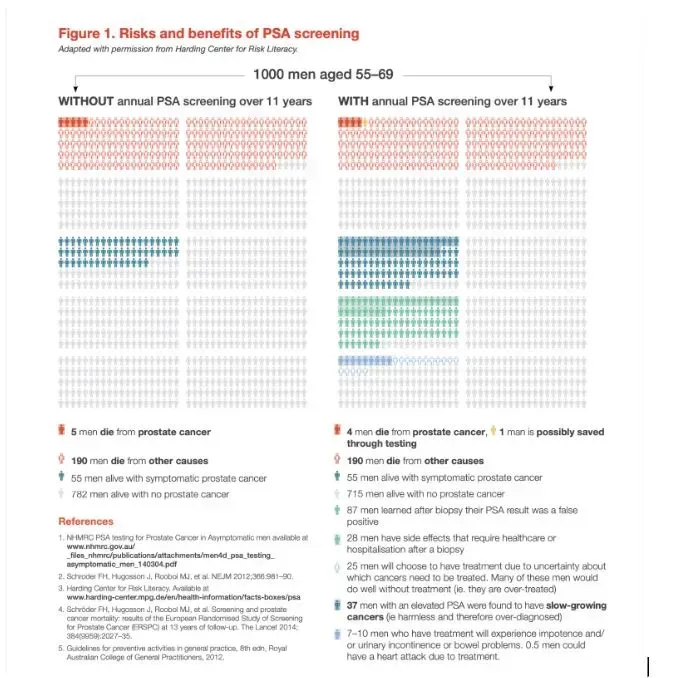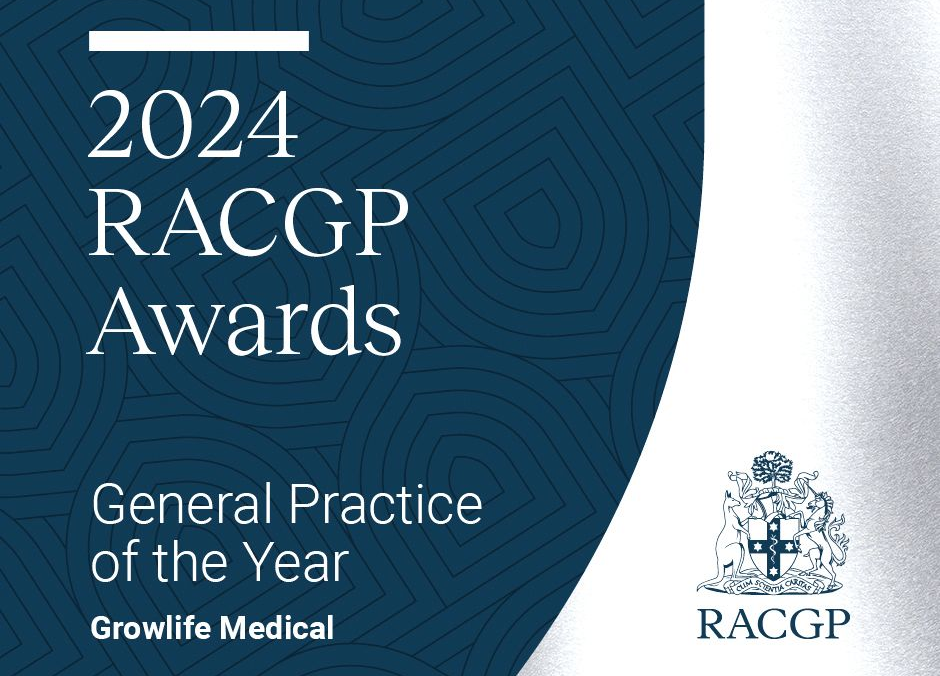Should I have a prostate check?

There is an interesting phenomenon that happens in GP offices across the country. Typically, it involves a middle-aged male nervously walking into the GP’s office, sizing up the doctor’s hand shake and glove size upon greeting. Then, once seated, saying “my wife said I should come in for a prostate check, doc”, before issuing a small clearing of the throat.
The question is, how should your GP respond? Should you have a prostate check?
In this special blog for Movember, Growlife Medical takes a look at the evidence behind a men’s health check, what you should have checked when seeing your GP, as well as the issue of whether you should have screening for prostate cancer.
Read on to find out if you need the glove, the blood test, or something unexpected...
Cause of Death and Illness in Men in Australia
When deciding what to prioritise during a check-up, it is important to consider what's common, and what's serious.
Most people recognise heart disease is common in Australia. It causes nearly double the number of deaths in men than its nearest rival, dementia. It is essential to recognise that vascular disease (which includes both heart attacks and strokes) and dementia account for the overwhelming majority of deaths in Australian men.
When considering both males and females, vascular disease, dementia, lung cancer, emphysema and bowel cancer make up all the top five causes of death in those over 65.
When considering men alone, prostate cancer takes up 5th place, similar to breast cancer in females.
So, even before we start to talk about prostate cancer screening, there are some important lessons here. Attention to not smoking, and maintaining healthy lifestyle habits to prevent vascular disease,
diabetes and dementia are the highest priority things you can do to stay healthy.

What About Screening for Prostate Cancer?
If you’re already exercising reasonably hard at least 3.5 hours a week, eating a good range of vegetables every day, and avoiding junk foods, then you’re well ahead of the pack. Does this mean you should have a prostate check? Let’s dive into the figures.
First, a disclaimer: this discussion is about a man without any prostate symptoms who is interested in screening for cancer. If you have symptoms with your penis, bladder, pelvic area, urination or ejaculation, (or any health problem for that matter) you should see your GP. We know men simply don’t do that enough.
How to Screen for Prostate Cancer
You might wonder how to screen for prostate cancer? The options available at present come down to physical examination and a blood test. Your GP can put a gloved finger up your bottom to check the shape and texture of your prostate or, order a blood test called the Prostate Specific Antigen (PSA) which detects small amounts of protein in your blood stream that arise from prostate tissue.
The problem here is accuracy. Small cancers in the prostate may be undetectable by the doctor’s finger. An enlarged, lumpy prostate may not be cancerous. The PSA blood test is notoriously inaccurate, with a large number of falsely elevated readings, and the possibility of a normal reading even when cancer is present.
How Accurate is Prostate Cancer Screening?
This issue with accuracy means that prostate cancer screening is prone to error, with large numbers of false positives and false negatives. It makes picking the right man for treatment quite difficult, as well as making it difficult to provide complete reassurance.
Luckily, two enormous scientific studies were conducted to understand the real-world effectiveness of prostate cancer screening; the European Randomised Study of Screening for Prostate Cancer (ERSPC) and the American Prostate, Lung, Colorectal, and Ovarian Cancer Screening Trial (PLCO). Between them, these trials involved around 250,000 men, and have been running for over 13 years at the time of writing. In each trial, men were randomly assigned to screening with a PSA blood test, or to not screening (called the control group).
Does a PSA Blood Test Reduce My Chance of Dying Early?
The upshot? In the ERSPC trial, about the same number of men died in both the screening group and the control group. In the PLCO trial, numerically more men died in the screening group than the control group! Fortunately, this wasn’t a statistically significant difference, but it does call into question whether prostate cancer screening is a good idea. After all, if you’re not likely to reduce your chance of dying, why bother?
This means the science says that screening for prostate cancer with today’s traditional methods does not reduce your chances of dying early.
If you’re interested in reducing your chances of dying from prostate cancer specifically, both trials did show a small reduction in your chance of dying from prostate cancer.
The European trial showed that over 13 years, for every 781 men screened, 27 extra men would need to be treated, to prevent one man dying of prostate cancer. So, your chances of being the one man to benefit are quite small. Consequently, this small benefit needs to be balanced against the risks.
Unfortunately, those risks are relatively common.
What are the Risks of Prostate Cancer Screening?
To illustrate the balance, the Royal Australian College of General Practitioners (RACGP) have published an infographic to help you decide on whether to get a PSA blood test. At Growlife Medical, doctors use this infographic regularly to help you understand whether to screen or not for prostate cancer.
In the figure below, courtesy of the RACGP, the men in red represent those aged 55-69 who die over the course of 11 years. The men shaded in red die of prostate cancer, with the man in yellow possibly saved through testing.
The shaded men are those who suffer complications from treatment, such as incontinence or impotence, overdiagnosis, hospitalisation due to complications from a prostate biopsy or even a heart attack.

Is Prostate Cancer Screening Worthwhile?
For my money, these don’t look like good odds.
Commonly, men decide not to screen when presented with the full data. On the other hand, some remain concerned about prostate cancer, and would rather test. This often relates to family history of prostate cancer. Either way, the choice is up to you. But before you decide to screen, you should be sure to think about whether science says it is worthwhile. Whilst science can’t make a value judgment, it certainly tells us that you won’t reduce your chances of dying early, and may end up with significantly reduced quality of life due to complications of screening and treatment.
There are changes to assessment and treatment of prostate cancer that might change the equation in future. What we really need, is a screening test that is much more accurate than the PSA. Sadly, we don’t have that right now.
Prostate MRI has potential to decide more accurately which men with a positive PSA need surgery, and therefore improve these figures. It is now commonly used in men with a raised PSA to help decide who needs a biopsy or surgery. The scientific community is hopeful that this might make for more accurate diagnosis of those who need to be treated. Right now, we don’t have the data to be sure if that’s the case.
What Should I do About a Men’s Health Checkup?
Fortunately, there is some good news right now.
The good news is that there is plenty you can do to improve your health, and it doesn’t involve painful or embarrassing tests.
If you’re 45-49, the best place to start is a thorough a 45-49 year old health check specifically designed for your age-group. Your doctor will discuss things like smoking, nutrition, alcohol, physical activity, stress, and assess your blood pressure, weight, cholesterol, kidney function, sugar and more.
For most age-groups, these are the things that matter, as getting them right will set you up for good health habits, and reduce the risk of all sorts of chronic disease. If you remain concerned about your prostate, have a chat with your GP and see what they think given your personal circumstances.
Even more important than all the above? You’ll be surprised to know that good social relationships are a more powerful predictor of your long term wellbeing and lifespan than all these traditional medical risk factors. Cultivating meaningful friendships through family, work colleagues, sporting teams and more is proven by science to be the best thing you can do for your health.
So stop reading this article, and go out and have some fun with friends. And make an appointment to see your GP for a proper checkup this Movember.
As for the gloved finger? You can rest easy. Sometimes that check is important if you have certain symptoms. But when it comes to screening, you won’t have to bend over. At least not in this GP’s office.

